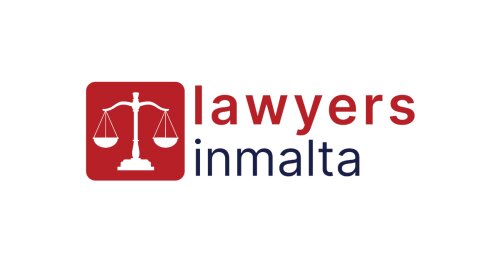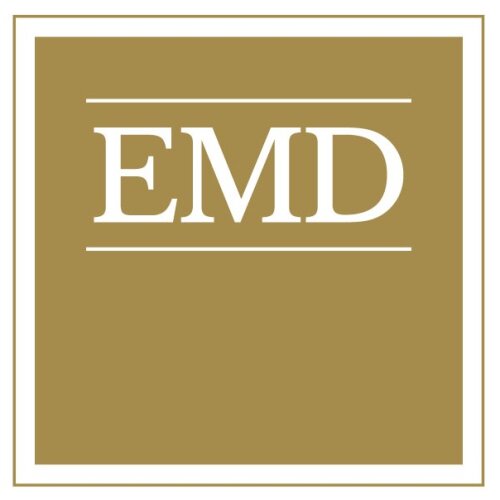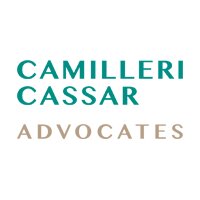Best Accounting & Auditing Lawyers in Valletta
Share your needs with us, get contacted by law firms.
Free. Takes 2 min.
List of the best lawyers in Valletta, Malta
About Accounting & Auditing Law in Valletta, Malta
Accounting and auditing in Valletta, Malta, are governed by a comprehensive legal framework designed to ensure transparency, accuracy, and compliance with both local and international standards. These laws not only help maintain the integrity of financial reporting but also provide guidelines for auditing processes, financial disclosures, and the responsibilities of accountants and auditors. In Valletta, accounting rules align closely with the International Financial Reporting Standards (IFRS), while auditing practices are modeled on the International Standards on Auditing (ISA).
Why You May Need a Lawyer
There are several scenarios where you might need legal assistance in accounting and auditing. For instance, you may require help with:
- Understanding complex accounting regulations and ensuring compliance.
- Dealing with audits by external bodies or tax authorities.
- Handling financial disputes or discrepancies.
- Advising on the establishment and maintenance of internal controls.
- Managing financial fraud cases and forensic investigations.
- Consulting on mergers, acquisitions, and company restructuring.
- Implementing corporate governance best practices.
Local Laws Overview
The Maltese legislation regulating accounting and auditing is diverse, encompassing several key statutes and regulations:
- Companies Act: This act outlines the legal requirements for financial reporting, auditing, and the role of corporate auditors.
- Accountancy Profession Act: This governs the practices and standards of the accountancy profession in Malta.
- Income Tax Act: Relevant for understanding how taxes are applied to individuals and corporations based on their financial accounts.
- VAT Act: Provides guidelines on the application of value-added tax to business transactions.
- Anti-Money Laundering Regulations: These regulations necessitate rigorous accounting and auditing practices to prevent financial crimes.
- General Financial Rules: These encompass EU regulations and directives that affect Maltese accounting and auditing standards.
Frequently Asked Questions
1. What accounting standards are used in Valletta, Malta?
Maltese companies generally follow the International Financial Reporting Standards (IFRS).
2. Are there any specific requirements for auditors in Malta?
Yes, auditors must be certified by the Accountancy Board and comply with the International Standards on Auditing (ISA).
3. How often must companies be audited?
All public companies are required to have their financial statements audited annually. Private companies may have different requirements depending on their size and legal structure.
4. What are the penalties for non-compliance with accounting laws?
Penalties can range from fines to imprisonment for severe breaches. Companies may also face additional sanctions, such as the disqualification of directors.
5. Can an accountant represent me in legal matters?
While accountants can provide valuable advice, only legal professionals can represent you in court or official legal proceedings.
6. What should I do if I suspect financial fraud?
Immediately consult both an accountant and a lawyer specializing in forensic accounting and fraud investigation.
7. How can I ensure my company complies with local accounting laws?
Regularly consult with accredited accountants and legal advisors to review your practices and ensure compliance with relevant laws and standards.
8. What is the role of the Accountancy Board?
The Accountancy Board regulates the accountancy profession in Malta, ensuring standards are maintained and providing certification for accountants and auditors.
9. How are accounting disputes resolved?
Disputes can be resolved through mediation, arbitration, or legal proceedings depending on the complexity and nature of the issue.
10. Are financial statements from foreign companies accepted in Malta?
Foreign companies operating in Malta must adjust their financial statements to comply with IFRS and local auditing standards.
Additional Resources
Several resources can provide further assistance for accounting and auditing in Malta:
- The Malta Institute of Accountants (MIA): Provides a wide range of resources and support for accountants.
- Accountancy Board: The regulatory body for accountants and auditors in Malta.
- Malta Financial Services Authority (MFSA): Overseeing financial regulations and compliance in the country.
- Inland Revenue Department: Essential for understanding and complying with tax obligations.
- Financial Intelligence Analysis Unit (FIAU): Ensuring compliance with anti-money laundering regulations.
Next Steps
If you need legal assistance in accounting and auditing, consider the following steps:
- Identify Your Needs: Clearly define the accounting or auditing issues you are facing.
- Consult Professionals: Approach certified accountants and legal professionals with expertise in Maltese accounting laws.
- Gather Documentation: Assemble all relevant financial documents for review by your advisors.
- Schedule Consultations: Book meetings with potential legal representatives to discuss your case and their approach.
- Review Recommendations: Consider the legal advice and recommendations provided to make informed decisions.
- Take Action: Implement the advised measures promptly to ensure compliance and address any issues.
By following these steps, you can seek the appropriate legal help and ensure your accounting and auditing practices are well-managed and compliant with the laws in Valletta, Malta.
Lawzana helps you find the best lawyers and law firms in Valletta through a curated and pre-screened list of qualified legal professionals. Our platform offers rankings and detailed profiles of attorneys and law firms, allowing you to compare based on practice areas, including Accounting & Auditing, experience, and client feedback.
Each profile includes a description of the firm's areas of practice, client reviews, team members and partners, year of establishment, spoken languages, office locations, contact information, social media presence, and any published articles or resources. Most firms on our platform speak English and are experienced in both local and international legal matters.
Get a quote from top-rated law firms in Valletta, Malta — quickly, securely, and without unnecessary hassle.
Disclaimer:
The information provided on this page is for general informational purposes only and does not constitute legal advice. While we strive to ensure the accuracy and relevance of the content, legal information may change over time, and interpretations of the law can vary. You should always consult with a qualified legal professional for advice specific to your situation.
We disclaim all liability for actions taken or not taken based on the content of this page. If you believe any information is incorrect or outdated, please contact us, and we will review and update it where appropriate.












